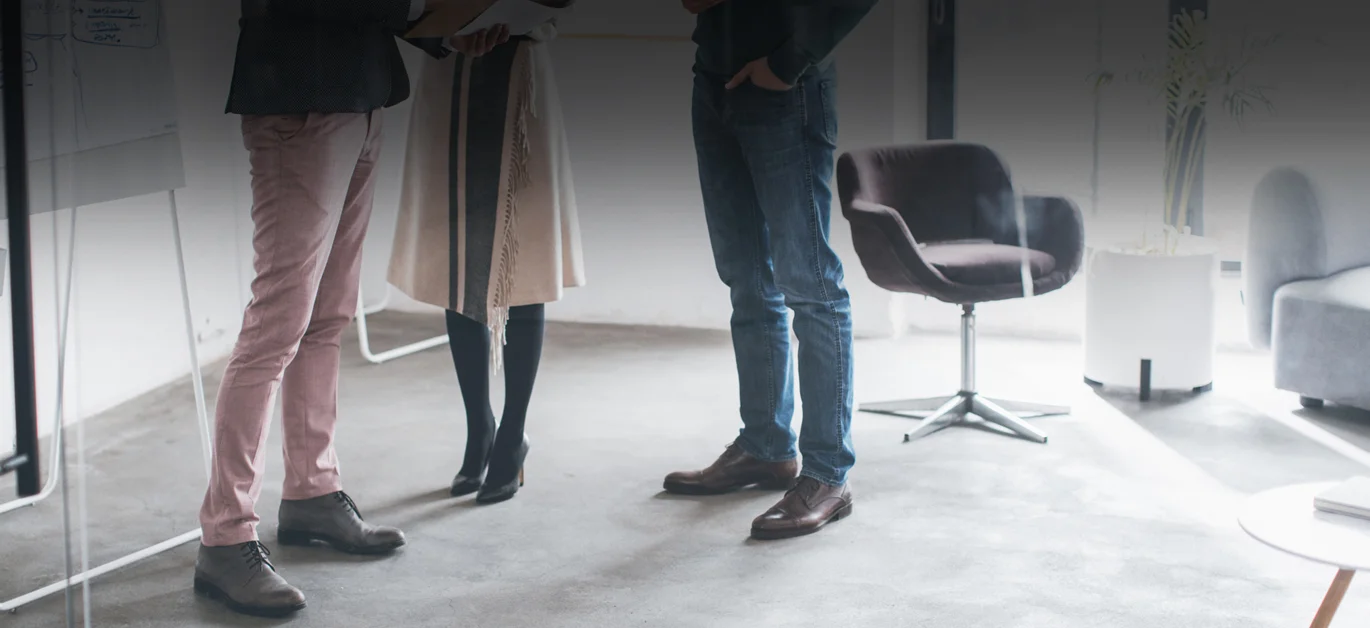
BLOG
4 Questions Before a Coaching Session
Great leaders have high self awareness and they use techniques to help them think strategically and proactively. Here are four questions I offer clients before a coaching session to help them get the most from our time together as well as increase self awareness + strategic thinking:
1) What's going well?
2) What are you discovering?
3) What are you challenged by?
4) What is your intention (goal) for our time together?
How to Be that Zen Calm Leader - Be Proactive
Image by Evan Sharboneau
I often hear leaders say - how can I be more Zen in my leadership?
One assumption we often make is to assume there’s a magic switch that we can turn on or off. “I’m not centered. Yikes!” Flip a switch…”Now I’m centered.” As lovely as that would be, it’s unrealistic for two reasons. One, it’s never as black and white as that and there are variations in how present or centered we are. And two, if you’re trying to be more Zen - more calm, more clear and more centered - when that challenging moment is upon you, it’s already too late.
A lot of what happens in the moment can be anticipated in advance.
One way to cultivate more Zen in your leadership is to be proactive and strategic – know your self, know your triggers
Being proactive, stepping back and getting perspective - these three things can dramatically reduce spikes in your cortisol levels and help you be less frazzled in the moment.
Most people are not only busy, but they also confuse busy with productive. Habitual busyness often leads to lack of planning, poor choices and poor judgement. Cultivating presence is a conscious, strategic step that increases clarity. If you are always busy, frenetically busy, start saying no to anything that does not align with your key goals. Trim the fat in your calendar. Be ruthless. Polite and kind, yes, but ruthless about your focus and where your energy is to be aimed. Having better boundaries and saying no to things at both at work and at home is essential. What percentage of time do you spend thinking strategically? How might you increase this by 1-5% each week? If you could get more done in less time it would be worth it, wouldn’t it?
Once you’ve made time for reflection, think back to the situations, events or people that typically cause you to lose your center. Triggers come, seemingly out of the blue, but even these follow patterns. Look for and become aware of your patterns.
It’s easy to become anxious or unbalanced when:
a. We’re in unfamiliar situations, people, places, events (people really underestimate how quickly and easily this happens).
When was the last time you were in a situation you’d never been in before?
What was new about it? How did you respond to this unfamiliar or uncertain condition?
What worked? What didn't?
What would you do differently if it happened again?
b. There’s a lack of trust – relationships that don’t have strong trust or conflicting styles and viewpoints.
When have you had to work closely with someone you didn’t trust or like?
What made it so difficult for you?
How did you find common ground? How did you consciously or unconsciously connect with that person? What worked? What didn’t?
What would you do differently if you were to work with them (or someone like them) in the future?
c. There are threats to your status, beliefs, sense of self
This takes a lot of self-awareness – definitely advanced work. (and it’s also linked to trust above)
When have you worked with someone who had a lot of power over you who was threatening in some way? When have long-held beliefs and your identity been challenged?
What went through your mind? How did you feel?
What was your body’s reaction? What enabled you to stay present?
What would you do differently if faced with the same (or similar) situation in the future?
d. Seasonal or project-based stressors are occurring – holiday season, back to school time, before or after time off, preparing for board meetings, an offsite, end-of-quarter, etc.
For some, back to school season or the holidays create an underlying build-up of stress.
For others it can even be more subtle, like the anniversary of the death of a loved one. Any or all of these can cause you to be off center without fully realizing it.
What seasons and stages in work or life are most stressful for you?
How do you know that you are off? What are the signs and signals that you are stressed?
When have you navigated some of these seasonal stressors with the most grace and ease?
How did you do it? Who or what helped to reduce the pressure and stress?
What could you do differently when faced with a particular seasonal stressor in the future?
e. Daily (“healthy”) routines that get disrupted.
We do our best to sleep well, eat well, exercise, etc…but what happens when we don’t and we can’t and we simply aren’t in control? What happens when even the very rituals that help sustain you are thrown off? I write this on a day that the power went out and I was dropped from a virtual meeting I was facilitating.
For a parent – the baby sleeps or doesn’t sleep. Or an aging parent or family member is needs unexpected care.
What happens when unknown or uncontrollable factors upset our continuum? This is when centering practice is most essential.
When was a time that you handled uncontrollable disruption well?
What were the factors that contributed to this? What might have been helpful that you didn’t do?
How will you know when it’s time to use that helpful thing in the future?
f. Unhealthy routines
Which of your regular routines may be hindering rather than helping your ability to be both awake and relaxed?
Do you check the news the moment you wake up – reading about the latest disaster and then start your entire day on your back foot rather than from center? What daily habits help you stay present and calm? What daily habits take you away from center? What is one daily habit you might shift? How will you shift it? What could support you in making that shift? What might get in the way?
Cultivating Zen in your leadership takes practice. It also entails being proactive, anticipating stressors in advance and maintaining perspective.
We invite you to pause…step back from life for a moment and take a conscious breath. Just doing that, right here, right now, is being more Zen in your leadership.
The problem-solver’s dilemma & tools for being more strategic at work
I work with people who are highly skilled problem solvers. As an addicted problem solver myself I would often create problems to solve just so I had something to work on in my head. Not consciously, of course, but I think I was that afraid of being bored and sitting still. As a practicing meditator I catch myself doing this all the time. Worrying about something, planning, prepping. Problem solving was a means to try to control my world. To reduce uncertainty, risk and….well, problems.
You don’t have to be problem solver addict to suffer from this. You could be someone who doesn’t beat your chest in victory because you are quickly and resolutely moving on to the next challenge. You might be someone who struggles to sleep at night as you play back the conversations/emails of the day and think “if only…I said or did this…” or perhaps you’re playing scenes from tomorrow’s critical shareholder meeting or the conversation you’ll have tomorrow when you have to let someone go. If stress and anxiety is a constant for you - you’ll definitely benefit from being more strategic at work.
Being more strategic at work doesn’t mean that you stop solving problems, you just start seeing them from a much wider lens. It means stepping back and looking in from a hundred feet up; Or from a the outside in rather than the inside out. Changing your perspective and vantage point is critical. When you are that far away, the problem of the day is far less personal. It’s not nearly as close to home, therefore the charge and the body’s primal reaction of freeze, flee, fight can relax. You can take a deep breath and see with clear eyes not just the challenge but a much bigger context and many more contributors or factors that could be influencing the situation at hand.
Being strategic requires not only the space to look from a new angle but a different rhythm and timing. It is very hard to be thoughtful and strategic when you are rushing. We humans have certain wiring. Rushing triggers adrenaline and increases stress hormones in the body. The stress reaction takes energy away from the highest level processors in the brain and sends it to your extremities so you can run or fight and survive the situation. This is why I will frequently start a meeting or coaching session with clients by centering and deliberately slowing down. Just one minute and heart rate slows down, breathing settles. Every time we do this the meeting is far more productive, the insights deeper and richer and overall clients seem much happier and supported. My questions don’t feel like a threat, but an opportunity to explore. Sometimes you have to go slow in order to go fast. Going slow increases your leverage and the ability to discern if you are headed in the right direction in the first place.
Part of being strategic is asking the question what went well? Problem solvers are quick to ask what went wrong and how do I ensure that doesn’t happen again. It takes some practice to deliberately ask what went well? If you a) have a harsh inner critic or b) dip into imposter syndrome or b) even if you have a hard time with approval and compliments from others then grab these questions below and make them part of your daily practice. At a minimum use them at the end of the day or week or quarter….or as you prep for your next offsite and next year’s planning. What went well? and then dialing in a little deeper…What were the conditions to make it so?
Autumn is a fabulous time to ask what went well. We even have a ritual for this in the United States. It’s called Thanksgiving. If asking what went well is new for you, I dare you to use the prompt right now, while the cycle of nature and the season of harvest supports this. In order to get to the next level of wherever you aspire to be…pause, reflect, go slow, look wide. See, feel, sense the richness of all that has happened and how even all the challenges are fuel for growth. See all that has happened like falling leaves. Look at the pile. What made it so?



